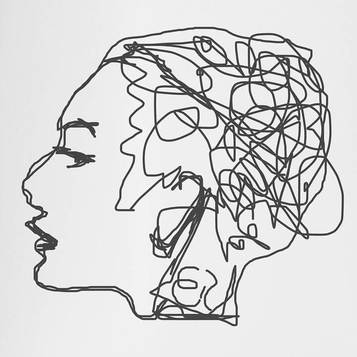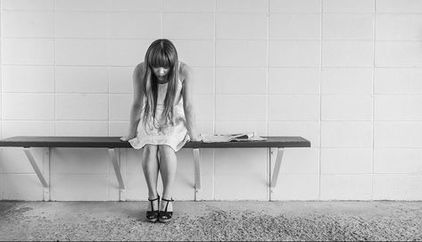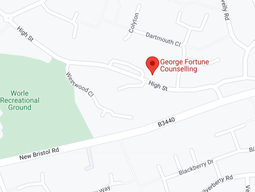|
Depression is extremely draining. It drains your motivation, energy and hope, making it extremely difficult to take steps to getting better. However, it’s not impossible to overcome, and it’s important to realise that you can take more control than maybe you realise. In my experience the key to improving depression is to start with small steps and build up. Your depression is not likely to drastically improve overnight; feeling better takes time. Below, I have written a list of 5 useful tips to managing depression, which I believe can help in your recovery. Tip 1: Accept your depressionThis may come as a shock to you, and you might be thinking that this is the opposite of what you should be doing. However, becoming depressed is very natural for humans, whether it be your gentics, brain chemitry, hormones or enviroment. One thing i've noticed is how our western society doesn’t really allow for depression, and that we must be seen to “keep moving forward”. This is great for our survival as a species but this thinking style doesn’t help when you’re depressed, as it can often lead to a negative view of yourself (“I should be doing better”, “snap out of it”, “Get a grip” etc…), which keeps the depressive cycle fuelled. When trying to accept your depression, it might be useful to:
Tip 2: Set yourself goalsWhen depression strikes, we often begin to stop challenging ourselves to push forward. It’s feels far easier to stop and withdraw, which is ok as mentioned in tip 1. Nevertheless, it's important to begin to move away from depression and start changing your current outlook. Setting yourself goals such as doing the dishes, making the bed, getting up, driving to work or whatever it may be will help you to build it into a habit that has a positive effect on mood. A bonus tip is to, once the goal is completed, acknowledge that it’s completed and congratulate yourself, even if it seems small like making the bed. The more you practice giving yourself positive affirmations, the easier and quicker it become ingrained into your way of being. Tip 3: Take responsibilityOnly you can truly improve your way of life. Speaking to a professional, such as a counsellor, can assist in your recovery and provide you with an environment where you gain more understanding of your depression, whilst learning how to manage the thoughts, feelings and behaviours associated with it far better. However, the motivation and willingness must come from you, you must be courageous and motivated in taking the steps to learn about yourself and your depression to overcome it. Another important factor in taking responsibility is to make sure that you stay involved in thing you were doing prior to becoming depressed, this will help keep structure and routine in your life. That being said, it may be useful to reflect on when you became depressed, as it could be linked to something you have been doing, which you may need to stop. Tips 4: Try something newI just mentioned taking responsibility for thing you did before you became depressed, but maybe it’s time to take up something new to help manage your depression. A few things could include:
Tip 5: Look after your bodyThis can be difficult when depressed as eating is often the last thing on our minds. However, research shows the link between our physical and mental health and the benefit that looking after one has on the other. I think it's important to first take a look at your current eating habits. Keep an eye on what you’re eating as well as how often, there is a risk of both over-eating and under-eating whilst depressed. Sleep is also a very important factor and one that depression can often impact. Sleep patterns when depressed are very subjective, for some people, being depressed makes them withdraw and stay in bed for hours, for others, no matter how hard they try and get to sleep they struggle. Sleep can be a very complicated subject when mental health and wellbeing is concerned and one I may write about in the future. That being said, I would suggest aiming for around 6 - 10 hours (adults) and 8 - 10 hours (teenagers). These are my 5 useful tips on managing depression. I hope you find them useful and please feel free to share them with friends and family who may benefit from them. Also, you may find it helpful to read my thoughts on Understanding and Improving Anxiety. Image's sourced from pixabay.com
0 Comments
 The first thing to note it that anxiety is a normal part of life and will affect all of us in different ways at different times. The cause of your anxiety may not be fully clear, or, the reason for your anxiety may actually be very clear to you such as a traumatic experience, having many stresses in life or significant life events like divorce. Whatever the reason, hopefully after reading, you are more knowledgeable of the symptoms associated with anxiety as well as understand ways to reduce your anxiety and improve your mental wellbeing without the use of medication. Common Symptoms of anxietyAnxiety is brought on by worrying about the future, and the negative impact that things you are worry about may have on you. This presents in four common symptoms: a physical response, negative thoughts, negative emotions and negative behaviours. The most common symptoms include:
Suffering with anxiety on a daily basis has a huge impact on your mind and body, leading to a negative cycle that can feel unbreakable. So what can you do about your anxiety?There is many things you can do to improve your anxiety. However, there are a few things to take into consideration:
Improve how you treat your bodyIt’s very well researched that improving the way you treat your body has an impact on your mental health. Here I have listed a few things you can do to better treat your body to help alleviate your anxiety. Exercise  Exercising has been shown to relieve tension and stress, boost your physical and mental energy, and releases endorphin's which enhance positive feeling and helps to reduce stress. Also, taking time out for yourself helps you to soothe the body. Make sure you are getting enough sleep  I’m sure you’re aware of how important getting enough sleep is. However, you may not be aware that when your stressed and anxious your body needs more rest and so getting your 8 hours sleep becomes even more important. Keep an eye on the amount of caffeine you’re consuming.  Caffeine is a stimulant, this is bad news if you’re anxious as it stimulates the brain, in particular the amygdala, which is responsible for our flight/flight response. The impact of this is an increase in your anxiety. If you’ve notice that after having a caffeine your anxiety is heightened, it might be a good idea to limit the amount you drink. Improve your mind to reduce your anxietyAs mentioned earlier, to boost your mental wellbeing often takes more than just one approach. We’ve discussed some ways to improve how your treat your body. Now, to discussed how to change your mindset to reduce your anxiety. Maintain a positive outlook Our outlook on life influences everything we do. You may know someone who always see the worst in everything and struggles to see the positive. The impact of this is that it becomes a habit that is extremely hard to change. That being said, it can be changed it just takes time and practice. A great way to start is to take notice of when your view on the situation is negative and try to challenge it to explore whether there is a positive that can be seen. Accept that everything can’t be controlled  This can be hard for some people; having control over something can feel really safe. However, it also leads to added stress and anxiety when the thing you’re trying to control cannot be. It’s important to put things into perspective and question whether whatever it is you are trying to control warrants your energy and time. Be pleased with what you can do  People cannot do everything and its important to realise that neither can you. There will be things that you can do better than others, and things that they are better at than you. Accept this, and instead of aiming for perfection all the time be proud of however close you get. Study your anxiety  If you’ve read this far then you are likely aware that anxiety affects everyone differently. Take the time to study and learn about YOUR anxiety; when it arises, what you are doing, how it makes you feel, think and behave. Tackle your anxiety head on and take control of it rather than letting it control you. That's great, now what can I do at the moment to manage my anxiety?Good question, here’s a few great tools to use when you notice you anxiety is beginning to arise.
Please leave your thoughts in the comments section. Likewise, visit my website www.georgefortunecounselling.co.uk to see other resources that might benefit you. (Picture's source from pixabay.com)
|
AuthorGeorge Fortune BSc (Hons) Archives
May 2018
Categories |
Counselling in Weston Super Mare and North Somerset. George Fortune Counselling
Location
|
George Fortune Counselling07462 110 948 |
Mission Statement
George Fortune Counselling is the trading name of StressLess Solutions Ltd
|










